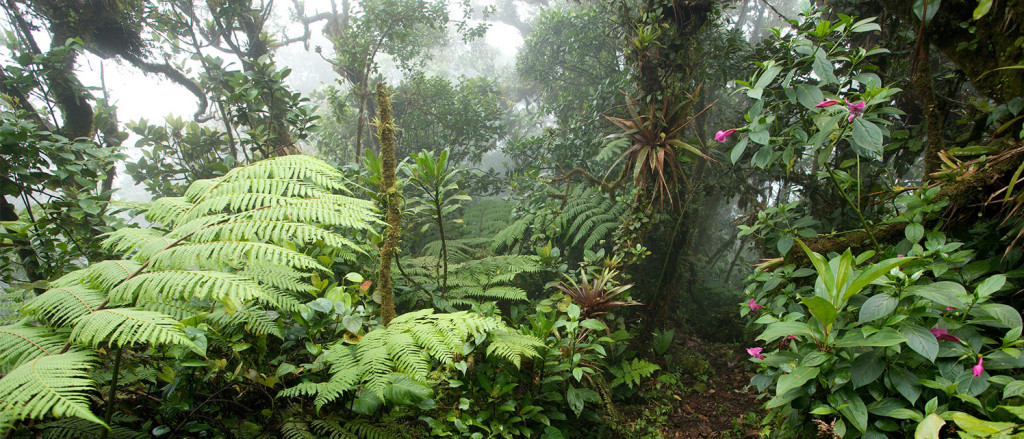Rainforest Trust reports of their expanding land holdings in Panama. Cerro Chucantí Nature Reserve in Panama has been expanded by 260 acres and safeguards critical habitats for newly discovered species, thanks to Rainforest Trust’s local partner Asociación Adopta el Bosque Panamá (ADOPTA), the International Conservation Fund of Canada (ICFC) and other supporters.
Rainforest Trust’s partner ADOPTA has secured 260 acres to expand Cerro Chucantí Nature Reserve in eastern Panama. Three land properties were purchased to establish an important buffer zone that will act as a barrier to prevent squatters from moving into extensive public wilderness areas and to discourage poachers from hunting in the vicinity.
“This initiative that first started with 100 acres of rainforest purchased has grown to almost 1,500 acres of rainforest that we’re protecting now,” said Guido Berguido, Executive Director of ADOPTA. “With the help of Rainforest Trust, we have been increasing more and more of the protected areas.”
Cerro Chucantí, an isolated massif or “sky island” in eastern Panama, rises from sea level to 4,721 feet in elevation and sustains a diverse cloud forest as well as other tropical forest ecosystems. The closest peaks with similar elevation and vegetation are found at least 90 miles away; the geographic isolation of the Cerro Chucantí mountaintop has allowed its flora and fauna to differentiate considerably, such that it contains a number of locally endemic rainforest species found nowhere else on Earth.
 Chucantí Salamander. PHOTO BY Abel Batista.
Chucantí Salamander. PHOTO BY Abel Batista.
Cerro Chucantí is home to many species new to science, and there is a high potential for many more to be identified. In 2008, the dark brown Chucantí Salamander (Bolitoglossa chucantiensis) was discovered in this area, and a new frog species called Maje Dink Frog (Diasporus majeensis sp. nov.) was found there and formally described in 2016. This chestnut-colored frog with red markings received its name from the genus’ characteristic ‘dink’ call, though this specific species’ sound is more reminiscent of a whistle.
“This site of Cerro Chucantí has turned out to be far more exceptional than we ever dreamed,” said Berguido. “More than 20 new species of plants and animals have been found at this location that are found nowhere else on Earth.”
There are still two species of snakes, at least three frogs, one salamander and over a dozen species of ants awaiting formal description. Cerro Chucantí is also home to a number of species recognized as being at high-risk for extinction, including the Great Green Macaw, Baird’s Tapir, Giant Anteater and the Critically Endangered Black-headed Spider Monkey.
 MAJE DINK FROG. PHOTO BY ABEL BATISTA.
MAJE DINK FROG. PHOTO BY ABEL BATISTA.
Despite their incredible biodiversity, the rainforests in Cerro Chucantí are under significant threat from slash-and-burn activities, logging and cattle ranching. During this year’s long dry season, forest destruction and conversion to pasture land continued near Cerro Chucantí Nature Reserve. The new strategic expansion of the reserve secures a section of the forest and prevents further clearing, especially as new colonists are encroaching on thousands of acres of unclaimed land. As a gateway to over 60,000 acres of public lands, Cerro Chucantí Nature Reserve is laying the foundation for the designation of government protected areas, an effort ADOPTA is working hard to achieve with the support of Rainforest Trust.
